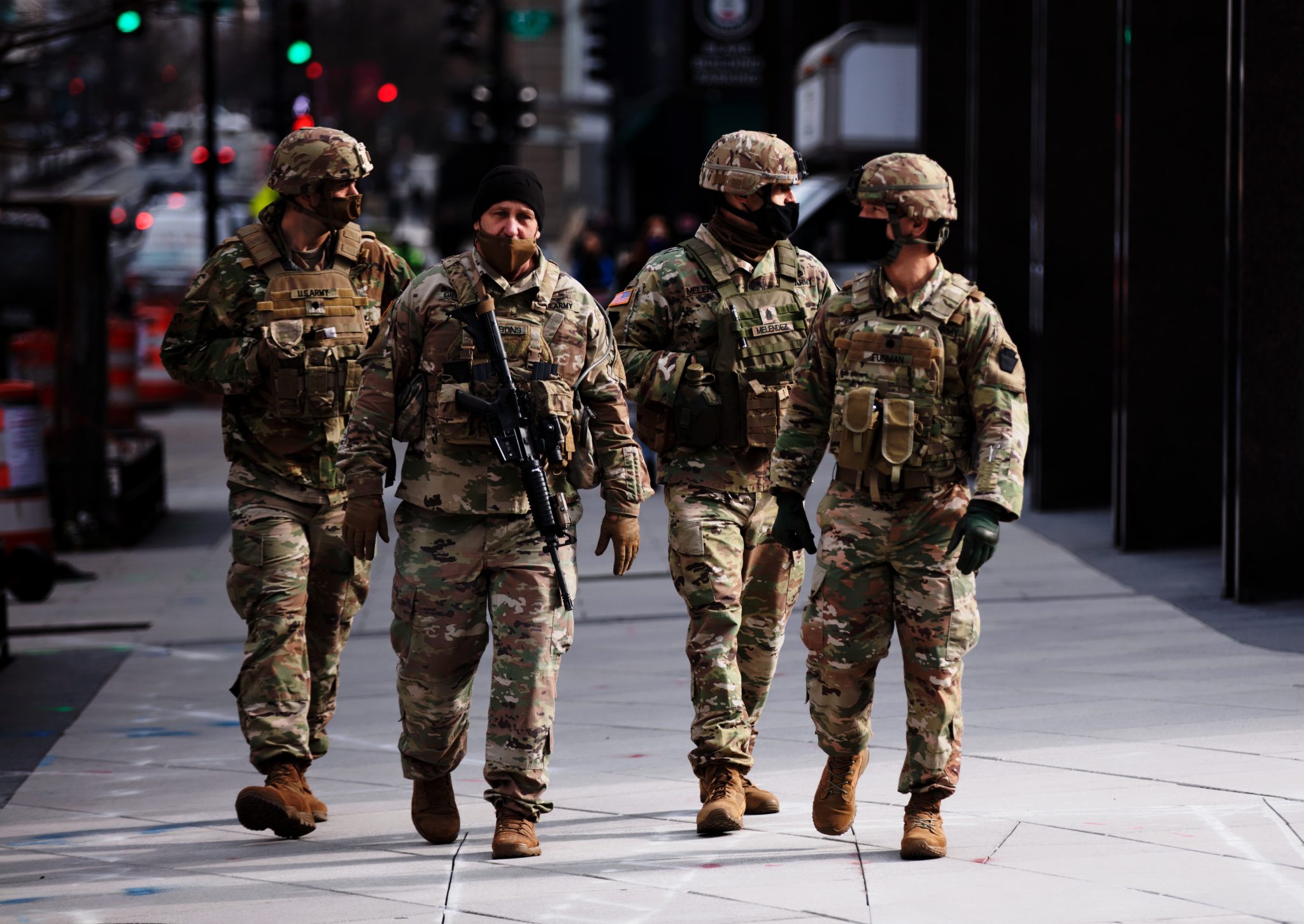Protest vs. Policy – Can We Separate Both?

As Los Angeles grapples with escalating immigration protests, a debate emerges on whether criticism of ICE and military personnel should distinguish between institutional policies and individual service members.
At a Glance
- President Trump deployed National Guard troops and Marines to control anti-ICE protests in Los Angeles without California Governor Newsom’s consent
- Alyssa Farah Griffin of “The View” cautioned against demonizing individual ICE agents and military personnel who are “following orders”
- California Governor Gavin Newsom is challenging the deployment as “illegal and unconstitutional”
- Former California Governor Arnold Schwarzenegger has called for bipartisan cooperation on immigration reform
- Protests have spread to at least 37 cities across the U.S., resulting in hundreds of arrests
Military Deployment Sparks Constitutional Debate
President Trump’s decision to deploy 4,000 National Guard troops and Marines to California without Governor Gavin Newsom’s approval has ignited a fierce constitutional battle. The deployment came in response to widespread protests against ICE raids in Los Angeles that have since spread to dozens of cities nationwide.
Governor Newsom has filed a lawsuit challenging what he calls an “illegal, immoral, and unconstitutional act” while the administration maintains the action was necessary to prevent the city from falling into chaos. The conflict represents a significant test of federal versus state authority in managing civil unrest and immigration enforcement.
The administration’s justification for the military presence centers on claims that Los Angeles was approaching collapse due to immigrant protests, though local authorities dispute this characterization. With active-duty Marines now visibly present on American streets, constitutional experts are questioning the legality of using military personnel for domestic law enforcement. The situation has quickly evolved from a localized immigration dispute into a national debate about executive power, states’ rights, and the proper role of military forces within American borders.
'The View' co-host warns cast mates not to demonize ICE and military personnel over LA riots https://t.co/gdGGMdTwgA
— Fox News (@FoxNews) June 11, 2025
“The View” Hosts Clash Over Treatment of Service Personnel
A recent episode of “The View” highlighted the complexity of discussing government institutions without vilifying individuals who serve within them. Co-host Alyssa Farah Griffin urged her colleagues to distinguish between policy criticism and personal attacks on service members. While acknowledging the controversial nature of the ICE operations and military deployment, Griffin emphasized that many agents and troops are nonpartisan professionals who “served under multiple administrations” and are simply following orders from their commander-in-chief.
“I haven’t made my point yet, The ICE agents, those are nonpartisan actors, for the most part, who signed up for jobs and served under multiple administrations. They did not necessarily sign up to be doing this, and they’re following an order of the commander-in-chief.”, Alyssa Farah Griffin
Her comments provoked an immediate response from co-host Whoopi Goldberg, who drew historical parallels by asking, “Where have you heard that before? ‘I’m just following orders from the commander-in-chief.'” Meanwhile, Sunny Hostin framed the situation in stark terms, suggesting the deployment represents “a power grab” and warning that “when you use the military against your own citizens, that is a sign of fascism.” The exchange highlighted the challenge of maintaining nuanced perspectives during emotionally charged political confrontations.
'The View' co-host warns cast mates not to 'demonize' ICE and military personnel over LA riots https://t.co/MXaefiQCOL
"The View" co-host Alyssa Farah Griffin warned her co-hosts on Wednesday against "demonizing" Immigration and Customs Enforcement (ICE… https://t.co/7HAAFJFkLP— 📱⭐Ty Buchanan⭐🌊 (@ty_buchanan) June 11, 2025
Schwarzenegger Calls for Bipartisan Solutions
Former California Governor Arnold Schwarzenegger has entered the debate with calls for cooperation across party lines. Drawing on his own immigrant experience, Schwarzenegger expressed empathy for those fearful of deportation while urging politicians to work together on comprehensive immigration reform. His comments emphasized that the current unrest could have been prevented through proper legislative action rather than enforcement-only approaches, placing responsibility on elected officials from both parties for failing to address longstanding immigration challenges.
“This wouldn’t happen if the politicians would do their work. Think about it.”, said Arnold Schwarzenegger.
Schwarzenegger’s statement that “I will always be an American before I am a Republican” highlights the tension many conservatives feel between party loyalty and principles of limited government. His approach offers a potential middle ground in an increasingly polarized debate, suggesting that proper governance and respect for constitutional boundaries should transcend partisan politics. As protests continue across the nation and legal challenges work through the courts, the response to these events may shape immigration policy and federal-state relations for years to come.
